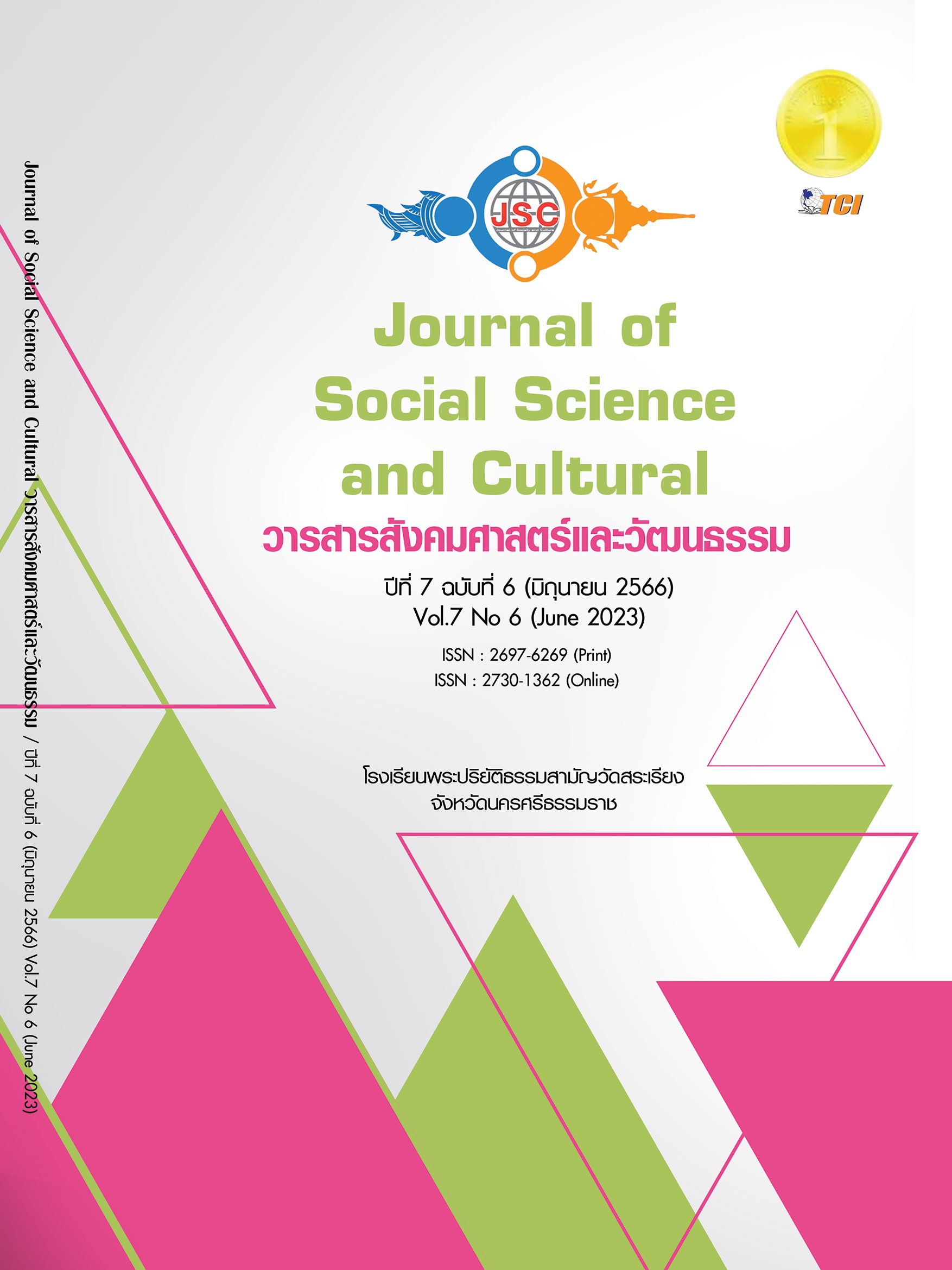THE HUMAN RIGHTS PROTECTION IN THE POLICE CRIMINAL INVESTIGATION PROCESS
Main Article Content
Abstract
This academic article explores the protection of human rights in the criminal investigation process by Thai police. Currently, the main focus is on human rights in the investigation process. While the investigation by the police is important and can affect civil liberties, the protection of human rights in criminal investigation proceedings is enshrined in the constitution and lower levels of law but there are important problems with human rights in the investigative process: 1) The law provides a broad definition of investigation and requires the police to exercise discretion without setting a framework or criteria for investigative discretion. If exercised with careful discretion, human rights may not be violated in the performance of work. 2) The rights of suspects who have committed crimes related to national security have fewer rights than the rights of suspects, even though they are only suspects. Contrary to the presumption of innocence according to the constitution and 3) The investigation process under the special law on narcotics, money laundering, and special investigation The only methods of suppression of transnational organized crime that have human rights protections enacted in investigative methods are vehicle searches, eavesdropping, and stealth operations. These special investigative procedures detail the method, procedure, and duration of the investigation to protect human rights. The Thai criminal justice system has mechanisms to protect human rights in the investigative process, namely protection within the organization, which is command. Organizational management according to good governance principles and controlling the morals and ethics of investigative officers Protection of human rights in external investigations includes the judiciary and the National Human Rights Commission, which are constitutionally independent bodies.
Article Details
References
เกียรติขจร วัจนะสวัสดิ์. (2551). คำอธิบายหลักกฎหมายวิธีพิจารณาความอาญาว่าด้วยการดำเนินคดี ในขั้นตอนก่อนการพิจารณา. กรุงเทพมหานคร: จิรรัชการพิมพ์.
กิตติพงษ์ กิตยารักษ์. (2541). กระบวนการยุติธรรมบนเส้นทางของการเปลี่ยนแปลง. กรุงเทพมหานคร: วิญญูชน.
คณิต ณ นคร. (2555). กฎหมายวิธีพิจารณาความอาญา (พิมพ์ครั้งที่ 8). กรุงเทพมหานคร: วิญญูชน.
พงศ์พัฒน์ ฉายาพันธ์. (2537). ความรู้เบื้องต้นการสืบสวนอาชญากรรม. กรุงเทพมหานคร: ศิลป์สยามการพิมพ์.
สง่า ดวงอัมพร และคณะ. (2531). การสืบสวนสอบสวนคดี ภาควิชากฎหมายวิธีบัญญัติ. กรุงเทพมหานคร: คณะนิติศาสตร์ มหาวิทยาลัยรามคำแหง.
อุทัย อาทิเวช. (2555). หน่วยที่ 3แนวคิดพื้นฐานเกี่ยวกับกระบวนการยุติธรรมทางอาญาและบทบาทขององค์การสหประชาชาติเกี่ยวกับกระบวนการยุติธรรมทางอาญา ใน กฎหมายวิธีพิจารณาความอาญาและพยานชั้นสูง. นนทบุรี: สำนักพิมพ์ มหาวิทยาลัยสุโขทัยธรรมาธิราช.
Adams, T. (1990). Police field operations. Indiana: Prentice-Hall.
Agere, S. (2000). Promoting good governance: Principles, practices and perspectives Vol. 11. London: Commonwealth Secretariat.
Bertalanffy, A. (1976). General System Theory. Foundations, Development, Applications. New York: George Braziller.
Borwornchai, D. (2020). Knowledge Management About Investigative Work That is The Best Practice of The Detective 4.0 Era. Journal of Arts Management, 4 (2), 385-398.
Cambell, M. A., H. (2004). Black’s Law Dictionary. ST. PAUL, Minnesota: West Publishing Co.
Chaturvedi, J. (2006). Police Administration and Investigation of Crime. New Delhi: Gyan Publishing House.
Doerner, W. . (1998). Introduction to law enforcement: An insider’sview. Woburn: Butterworth-Heinemann.
Kleinig, J. (2008). Ethics and criminal justice: An introduction. Cambridge: Cambridge University Press.
Milte, L., & Weber, T. A. . (1997). Police in Australia: Development, functionsand procedures. Sydney: Butterworths.
Packer, H. . (1964). Two models of the criminal process. University of Pennsylvania Law Review, 113(1), 1-11.
Vanderbosch, G. (1968). Criminal Investigation. Washington D.C.: International Association of Chiefs of Police.
Weston, P. B. (1980). Criminal Investigation : Basic Perspectives Upper Saddle River . New Jersey: Prentice Hall Publishing.
Zalman, M. (2002). Criminal procedure: Constitution and Society. Interlochen: Prentice Hall.


